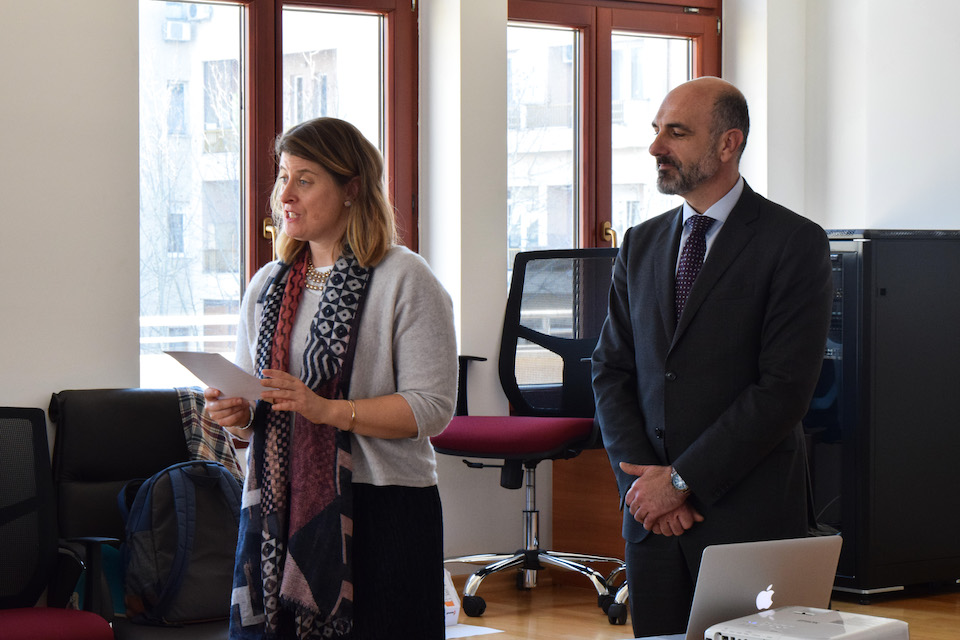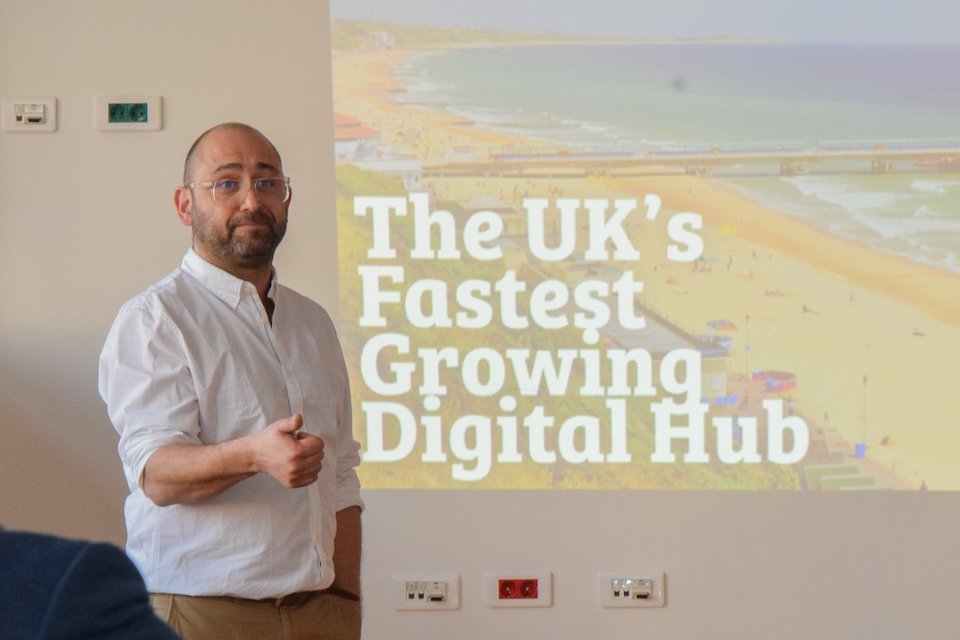Development of city digital strategies in Montenegro
Ambassador Alison Kemp addressed workshop participants as part of the CSSF funded project in Montenegro.

Dear colleagues,
Thank you for joining us today.
As you are aware, urbanisation has been going on for millennia, but global population movements and digital change have supercharged this trend over the last generation.
The world is changing, or better to say - it has changed already. Half of the world population lives in cities. Podgorica is an excellent example of it, one third of people living in this country are here in this city. Such concentrated cities are the new centres of ideas and innovation exchange.
In 2015, 85% of global GDP was created in cities. Successful countries are built upon successful cities. And there is increasing competition between cities for talent and investment. Today, if a city wants to attract and retain talent it must become somewhere people really want to live and invest.
At the same time, digital is rewriting the social contract - changing the relationship between individuals and the state and individuals and business. Yet today, only 45% of people trust that technology will improve their lives.
Over the last generation we’ve seen the rise of the concept of “digital cities”: where digital technology and data science are used to increase the efficiency and quality of public services and streamline the communication between the citizens and local government.
In the past decade, the UK has emerged as a global leader when it comes to digital urban transformation both at a national and municipal level. And we are keen to share our experience and in line with the European Union’s Digital Agenda.
In 2018, the UK government supported the British Council’s Digital Cities programme, implemented in partnership with Belgrade-based Culture Code.
The project connected cities in the UK and the Western Balkans through a knowledge exchange between city administrations, and developing the skills and collaborative capacities of digital hubs across the UK and Western Balkans.
I am excited that we are able to continue this programme with Podgorica City, and to support the City as it develops its digital strategy.
Cities are in a unique position to create digital ecosystems that encourage innovation and increase the productivity and well-being of their residents, by solving emerging local challenges.
We have seen in UK that careful engagement and consultation with relevant stakeholders is essential in designing a successful digital transformation strategy at any level.
Government does not have a monopoly on delivering digital change, which is why it is so important that they understand when and how to encourage digital growth in their economy and community, and judiciously use digital innovation to improve the delivery of public services.
I am delighted that the Podgorica City recognises the potential impact of this programme and has agreed to be the UK’s partner on this journey.
With the help of NGO Digitalizuj.me and Matthew Desmier, a British expert whose work has helped Bournemouth become the fastest growing digital economy in the UK - we hope to put Podgorica Municipality on the path of strategic digital transformation.

Mr Matthew Desmier, UK expert
As a result of this initiative, we hope you will successfully define what is the “digital city” in a local sense of that word and that you will be able to help yourselves to build a strong, stabile and sustainable city for its current and future residents.
Thank you.